| ▲ 전북해양경찰 경우회장 = 전현명. © 김현종 기자 |
|
바다!
많은 이들이 아름다운 낭만과 동경의 공간으로 기억한다.
멜로물 영화나 드라마에서 자주 등장하는 바다의 모습은 파도가 일렁이고 배가 떠다니는 멋진 풍경이다.
하지만, 재난영화에서 보는 바다는 완전히 다르다.
이처럼 낭만과 위험의 양면성을 품은 바다에서 꼭 지켜야 할 것은 안전이다.
코로나19가 안정세로 접어들어 야외 활동이 많아지고 답답한 일상에서 벗어나 바다를 찾는 인구가 늘어나면서 바다의 안전사고가 염려되는 상황이다.
해양경찰청이 발행한 '2021년 해상 조난사고 통계연보'에 따르면 최근 3년간(2019~2021년) 해상 조난사고로 목숨을 잃은 사람은 151명ㆍ실종자는 73명으로 집계됐다.
크고 작은 사고로 구조된 인원은 무려 61,879명에 이른다.
또한 해양경찰청에 따르면 최근 5년간(2018~2022년) 연안 해역에서 ▲ 익수 ▲ 추락 ▲ 고립 ▲ 표류 등으로 발생한 인명 사고는 총 3,374건으로 이 가운데 559명이 목숨을 잃은 것으로 나타났다.
바다는 힐링의 공간이자 생업의 공간이기에 안전을 지키지 않으면 인명과 직결되는 사고로 이어 질 수 있다는 점을 인식해 해양 레저객이나 여행객ㆍ해양산업 종사자가 반드시 기억해야 할 몇 가지 사항을 제언한다.
첫째, 바다의 갑작스러운 기상변화에 대응할 수 있도록 기상정보를 수시로 파악해야 한다.
자신과 선박의 위치를 실시간으로 정확히 알아야 예기치 못한 상황이 발생할 경우, 신속한 신고와 구조로 이어 질 수 있다.
둘째, 바다를 찾는 사람들은 만약의 사고에 대비해 현지 조석시간을 확인해야 한다.
해루질(바닷물이 빠진 갯벌에서 어패류를 채취하는 행위)과 갯벌체험을 즐기는 사람들은 밀물시간 이전에 육지로 나와 익수나 갯바위 등에 고립되지 않도록 주의해야 한다.
특히, 갯벌에서 바닷물의 주 통로인 갯골에 빠지면 헤어 나오기 힘들어 사고로 이어질 수 있는 만큼 절대 접근해서는 안 된다.
셋째, 바다 낚시객은 구명조끼를 필히 착용하고 위험구역으로 지정된 출입금지 구역은 출입하지 말 것을 당부한다.
선상이나 갯바위ㆍ방파제에서 높은 너울성 파도나 미끄럼으로 인한 ▲ 실족 ▲ 추락 ▲ 익수 ▲ 고립사고가 발생할 수 있는 만큼, 구명조끼 착용 등 안전수칙을 반드시 준수해야 한다.
넷째, 여객선과 유ㆍ도선 이용객은 혼잡을 피하기 위해 온라인으로 승선권을 예매하고 비상시를 대비해 구명조끼가 있는 곳과 착용 방법을 알아두어야 한다.
섬 지역에서는 마지막 여객선이나 유ㆍ도선은 항상 탑승객이 많을 수밖에 없기 때문에 미리 섬에서 나올 수 있도록 주의해야 하고 안전항해를 위해 정원초과를 요구해서는 안 된다.
다섯째, 수상레저 활동 시에는 현지 기상상태와 레저 장비를 출항 전에 반드시 점검하고, 유사시 자신의 안전을 지킬 수 있도록 지형지물의 위험요소를 사전에 파악해야 한다.
조난을 대비해 휴대전화에 '해로드'나 '바다내비'앱을 설치하고 예비 배터리ㆍ방수팩ㆍ무전기를 준비해야 한다.
또한 출항지로부터 10해리이상 원거리 레저 활동에는 반드시 가까운 해양경찰에 신고하고, 원거리가 아니더라도 자신의 안전을 위해 신고하는 습관을 갖도록 해야 한다.
여섯째, 쓰레기가 바다로 유입되지 않도록 조심해야 한다.
인간과 자연이 만든 쓰레기가 태풍ㆍ홍수 등으로 강이나 바다 목을 통해 유입되거나 해양종사자들이 고의 또는 과실로 버리는 생활쓰레기 내지는 어구와 로프류 등이 유입된다.
쓰레기들이 선박의 추진기에 감기거나 냉각수 파이프에 말려들어가 기관고장으로 이어지는 사례가 있다.
수거보다 훨씬 효과적인 해양쓰레기 줄이기를 실천해야 해양환경보존 및 선박사고가 줄어든 다는 것을 꼭 명심해 줄 것을 거듭 강조한다.
끝으로, 선박종사자들은 바다 생업의 현장에서 출항 전 장비점검을 필수적으로 실시하고 과적과 과승 및 음주운항 등이 해상 사고의 주범임을 인식해야 한다.
고난과 역경의 바다에서 내가 지키는 준법과 안전의식이 우리 모두의 안전을 지킨다는 신념으로 깨끗하고 안전한 바다를 만들어 나가는데 우리 모두가 함께해야 한다.
☞ 아래는 위 칼럼을 구글 번역으로 번역한 영문의 '전문'이다.
구글 번역은 이해도를 높이기 위해 노력하고 있으며 영문 번역에 오류가 있음을 전제로 합니다.
【Below is the 'full text' in English translated by Google Translate in the column above.
Google Translate is working hard to improve understanding, and assumes that there are errors in the English translation.】
Safe and clean sea… we make it!
【Column】Jeon Hyeon-myung = Chairman of Jeonbuk Coast Guard
Many people remember it as a space of beautiful romance and longing.
The view of the sea that often appears in melodramatic movies and dramas is a wonderful scenery with waves rolling and boats floating.
However, the sea seen in disaster movies is completely different.
In this sea of romance and danger, what must be protected is safety.
As Corona 19 enters a stable phase, outdoor activities increase, and the number of people seeking the sea to escape from their frustrating daily life increases, raising concerns about safety accidents at sea.
According to the 'Statistical Yearbook of Maritime Distress Accidents in 2021' published by the Korea Coast Guard, 151 people lost their lives in maritime distress accidents in the last three years(2019-2021), and 73 people were missing.
A whopping 61,879 people were rescued from accidents large and small.
In addition, according to the Korea Coast Guard, there have been a total of 3,374 human accidents caused by drowning, falling, isolation, and drifting in coastal waters over the past five years(2018-2022), of which 559 people lost their lives.
Recognizing that the sea is a space of healing and a place of livelihood, not keeping safety can lead to accidents that are directly related to human life, we suggest a few things that marine leisure travelers, travelers, and marine industry workers must remember.
First, it is necessary to frequently grasp weather information in order to respond to sudden weather changes in the sea.
Knowing the exact location of yourself and the ship in real time can lead to prompt reporting and rescue in the event of an unexpected situation.
Second, people visiting the sea should check the local tide time in case of an accident.
Those who enjoy haerujil(the act of collecting fish and shellfish from tidal flats where the seawater is drained) and mudflat experiences should come to land before high tide and be careful not to become isolated on drowning or seashore rocks.
In particular, if you fall into the tidal channel, which is the main passage of seawater in the tidal flat, it will be difficult to get out of it and it can lead to an accident, so you should never approach it.
Third, sea anglers are requested to wear life jackets and not to enter restricted areas designated as dangerous areas.
Safety rules, such as wearing a life jacket, must be followed as ▲ tripping ▲ falls ▲ drowning ▲ isolated accidents due to high swell waves or slips on board or on seashore rocks or breakwaters.
Fourth, passengers on passenger ships and ferries should book boarding tickets online to avoid congestion and know where life jackets are located and how to wear them in preparation for emergencies.
In the island area, the last passenger ship or ferries and ferries always have a lot of passengers, so you must be careful to leave the island in advance, and you must not ask for more than the capacity for safe navigation.
Fifth, in the case of water leisure activities, you must check the local weather conditions and leisure equipment before departure, and in case of emergency, you must identify the risk factors of the landmarks in advance to protect your safety.
In case of distress, you should install 'Harrod' or 'Sea Navi' apps on your mobile phone and prepare spare batteries, waterproof packs, and walkie-talkies.
In addition, for long-distance leisure activities more than 10 nautical miles from the port of departure, be sure to report to the nearby Coast Guard, and make it a habit to report for your own safety even if it is not a long distance.
Sixth, we must be careful not to let garbage into the sea.
Trash created by humans and nature flows in through rivers and sea necks due to typhoons and floods, and household waste or fishing gear and ropes intentionally or negligently discarded by mariners are introduced.
There are cases where garbage is wound around the ship's propulsion or gets caught in the cooling water pipe, leading to engine failure.
It is emphasized again and again that it is important to keep in mind that marine environment conservation and ship accidents can be reduced only when we practice marine debris reduction that is much more effective than collection.
Lastly, ship workers must perform equipment checks before departure from the field of maritime business and recognize that overloading, excessive driving, and drunk driving are the main culprits of maritime accidents.
In the sea of hardship and adversity, we must all work together to create a clean and safe sea with the belief that the law-abiding and safety awareness I keep will keep us all safe.















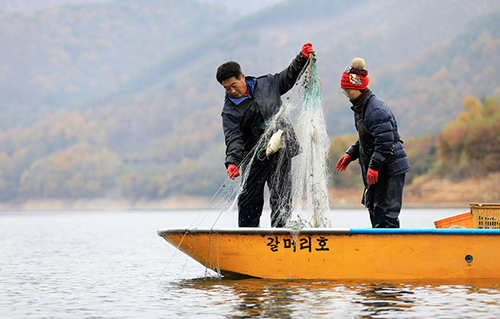
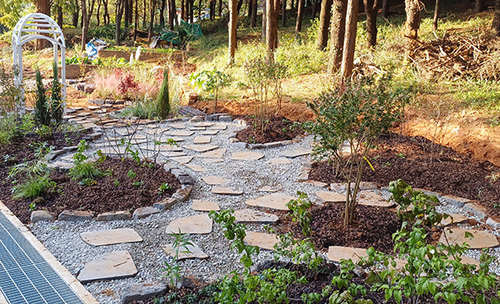
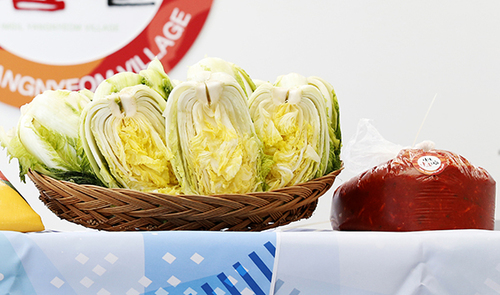
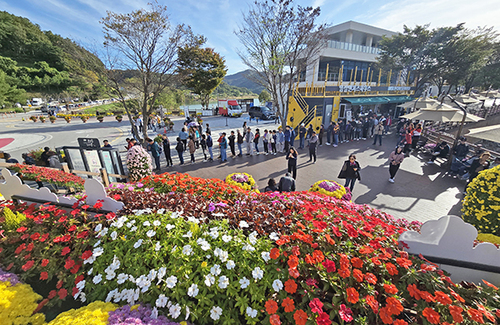

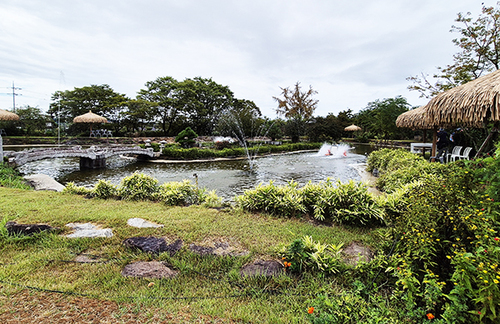
 많이 본 뉴스
많이 본 뉴스











